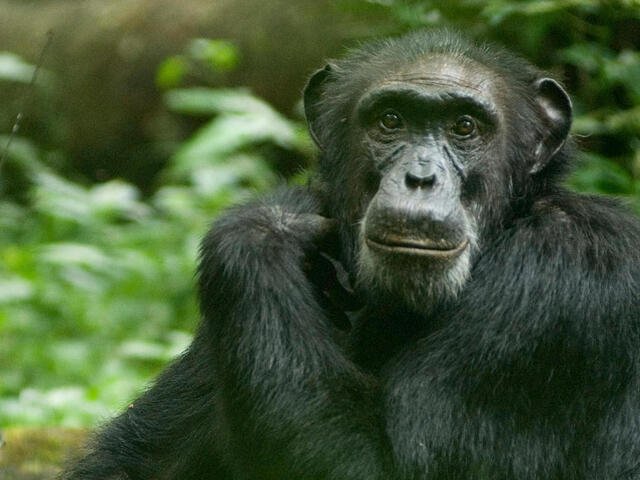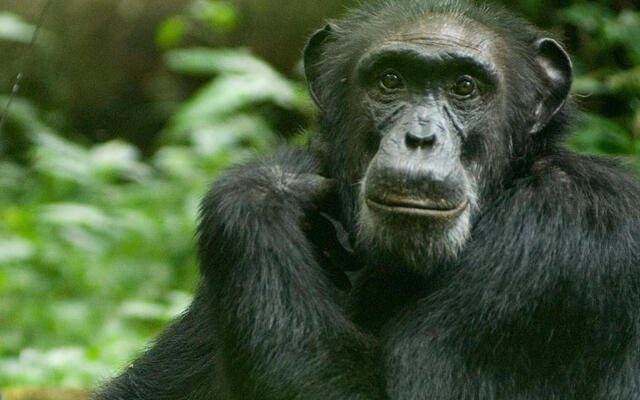
Just like a delicate balance in nature, chimpanzees are crucial to their ecosystems. They help spread seeds, which promotes forest growth, and their behaviors reveal insights into our own evolution. However, as they struggle against threats like habitat loss and poaching, it’s essential to explore their status and what we can do to help. Grab a coffee, and let’s dive into the world of chimpanzees and the conservation efforts underway to protect them.
Understanding The Status of Chimpanzees
Chimpanzees (Pan troglodytes) are currently classified as endangered on the IUCN Red List. This classification means their population is declining rapidly, with estimates suggesting that there are only about 150,000 to 250,000 individuals left in the wild. This alarming figure prompts questions about their survival and the factors leading to this decline.
Their habitats face severe threats, predominantly from *deforestation* and *habitat fragmentation*. Logging, agricultural expansion, and urban development slice through the forests where chimpanzees live. Imagine trying to navigate a busy highway when there are no safe crossings; that’s the reality for many chimpanzees caught in fragmented landscapes. They can’t find food, mates, or shelter, which severely hampers their chances of survival.
Moreover, chimpanzees are hunted for bushmeat and captured for the illegal pet trade. The latter is particularly heartbreaking. Chimpanzees raised in captivity often suffer from abuse or poor living conditions, far removed from their natural behaviors and social structures.
Threats Facing Chimpanzees
To fully grasp the plight of chimpanzees, we need to look at the primary threats they encounter. Let’s break it down:
- Habitat Loss: As mentioned, deforestation leads to habitat loss. This occurs because of logging, agriculture, and mining. When trees are cut down, chimpanzees lose their homes and food sources.
- Illegal Hunting: Chimpanzees are hunted for their meat. This practice is not only illegal but also unsustainable. As more chimpanzees are killed, the population dwindles, jeopardizing the species.
- Poaching for the Pet Trade: Capturing young chimpanzees to sell as pets is a huge issue. These animals are taken from their families and often face neglect in captivity. The psychological trauma for these animals is devastating.
- Diseases: Like humans, chimpanzees can catch diseases. When they come into contact with human populations, they can suffer from illnesses like Ebola or respiratory infections that can quickly wipe out entire communities.
Each of these threats paints a clearer picture of why chimpanzees are struggling. It’s like watching a beautiful tapestry slowly unravel—every thread represents a vital part of their existence, and losing any of them weakens the whole fabric.
Conservation Efforts Around The Globe
Despite the gloomy outlook, conservationists have taken significant steps to protect chimpanzees and their habitats. Organizations worldwide are working tirelessly to make a difference.
For instance, protected areas like national parks offer a refuge where chimpanzees can thrive. These parks help maintain their natural habitats and prevent illegal hunting and logging. One well-known spot is the Gombe Stream National Park in Tanzania, where researchers have studied chimpanzees for over 60 years. This kind of long-term research is essential, as it informs conservation strategies and raises awareness of the species’ needs.
Additionally, some groups focus on community engagement, teaching local populations the value of preserving chimpanzees. By involving communities in conservation, the people living near chimpanzees can benefit from ecotourism and sustainable practices, providing both economic and environmental incentives.
Your Role in Chimpanzee Conservation
You might be asking, “How can I help?” Each of us can play a part in chimpanzee conservation without needing to travel to distant rainforests. Here are a few simple yet impactful actions:
- Raise Awareness: Talking about chimpanzees and their challenges with friends and family can spread the message. The more people know, the more likely they are to care.
- Support Ethical Organizations: Donations or volunteer work for conservation groups can significantly help. Look for organizations that focus on habitat preservation, anti-poaching efforts, and education.
- Choose Sustainable Products: Supporting brands that prioritize sustainable practices helps reduce habitat destruction. Opt for products that don’t contribute to deforestation or exploitation.
- Reduce Your Carbon Footprint: Climate change plays a role in habitat loss. Small changes, like driving less, using energy-efficient appliances, or supporting renewable energy, can help protect chimpanzee habitats.
Every action counts. Just think of it like a ripple effect: your efforts can inspire others to join in, creating a larger wave of support for chimpanzees.
The plight of the chimpanzee is a powerful reminder of the fragility of nature and how our actions impact the world around us. As we’ve explored, these magnificent creatures face numerous threats, but their story isn’t over yet. Through concerted conservation efforts and community involvement, there is hope for their future.
Honestly, we have a responsibility to protect wildlife and preserve the planet for generations to come. Just like a family looking out for one another, we must nurture and protect our closest relatives in the animal kingdom. So, let’s carry this knowledge forward and strive to make a difference—because saving chimpanzees is not just about them; it’s about all of us sharing this world.

